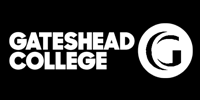Root and Branch: BBC Review
The UK Government has set out its stall with regard to its forthcoming review of the BBC’s Royal Charter, which will amount to a fundamental review of the corporation’s function, remit and funding model.
The Royal Charter establishes the remit of the BBC and is due to expire at the end of 2016. A green paper presented by the Government last week seemed to send shockwaves throughout the BBC despite outlining areas that were widely anticipated.
The consultation sets out four broad issues for public discussion: the BBC’s mission, purpose and values, its scale and the scope of its services and operations, the way in which it is funded and governance and accountability.
Announcing the green paper, Secretary of State for Culture, Media and Sport John Whittingdale MP (pictured) said: “The BBC is at the very heart of Britain. It is one of this nation’s most treasured institutions – playing a role in almost all of our lives”.
Whittingdale added: “However we need to ask some hard questions during this Charter Review. Questions about what the BBC should be trying to achieve in an age where consumer choice is now far more extensive than it has been, what its scale and scope should be in the light of those aims, how far it affects others in television, radio and online, and what the right structures are for its governance and regulation”.
Whittingdale also pointed out that the media landscape had changed significantly in the ten years since the Government last ran a review.
The consultation lasts for 12 weeks from 16th July to 8th October, with the Government asking for input from the public and industry before putting forward recommendations in Spring 2016. This follows the ‘shotgun’ deal done between the BBC and the Government in the build up to recent budget announcements, in which the BBC agreed to take on the £750m cost of funding free license fees to over 75 year olds. This was in return for the license fee rising in line with inflation and the Government setting out to close loopholes that allow viewers to watch catch-up services on the iPlayer without a license.
Shadow Culture Secretary Chris Bryant MP said: “This really doesn’t look like a good deal for the BBC. It feels as if the BBC had a gun to their head and chose to get shot in the leg instead”.
Generate debate: Enough hot air to power a fleet of balloons over New Broadcasting House has already been expelled on this topic so lets cut to the chase: Is this Whittingdale’s phony war or a genuine threat to Auntie’s future? Does it need to be said (as it has been here in The Guardian), that it is not unreasonable to question the scope and funding model of the BBC as a publicly funded entity? Do the public really want to see a less populist, scaled down BBC? Would a license fee topped up with subscription fees for certain services and channels be viable in the long-term? Should the music industry rally around the BBC as, um, BBC Director of Music Bob Shennan has suggested? Oh, and what are the knock on effects for PRS and PPL royalty rates if funding is reduced?
Address
Coronation House, 65 Quayside, Newcastle Upon Tyne, NE1 3DE
Telephone
07955289085
Connect with Generator
© Generator 2025 - All rights reserved.
Delivered with Cargo Creative




















